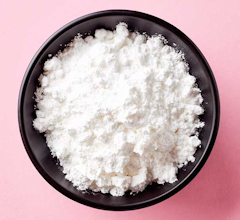Sodium Benzonate
 Sodium Bonzonate is one of the first food preservatives ever approved for use in foods. Manufacturers make it by mixing benzoic acid with sodium hydroxide. Though it is a synthesised product, benzoic acid is also found in some plants.
Sodium Bonzonate is one of the first food preservatives ever approved for use in foods. Manufacturers make it by mixing benzoic acid with sodium hydroxide. Though it is a synthesised product, benzoic acid is also found in some plants.
Sodium Bonzonate is widely used as a food additive, added to various beverages and certain foods. It is generally recognised as safe (GRAS). Thus, it is an approved food additive in the EU, the US, and worldwide. It is added to foods as a preservative, preventing the growth of harmful bacteria, moulds, and yeasts, therefore enhancing food safety. The use of Sodium Benzonate in products can also assist to extend their shelf life and ensure consumer safety.1
When it comes to its health benefits, reports are mixed. Some consider it harmful to health, but it is also thought to help in many health conditions.2
Sodium Benzoate Health Benefits
In recent years, interest in its health benefits has also been rising. Many researchers think that since it can influence certain enzymes in the body, it is also suitable for health. It is especially believed to be good for nerve and brain health:
- Schizophrenia
Schizophrenia is one of the most challenging diseases to treat. Those living with schizophrenia suffer from significant changes in brain function, experiencing hallucinations and psychosis. Anti-psychotic drugs are helpful, but they are not always able to assist. It is a diagnosis for a lifetime, and those living with schizophrenia generally have to take toxic drugs daily to keep the condition under control. Studies suggest that Sodium Benzoate is good for countering its symptoms. One of the clinical trials found that adding Sodium Benzoate used in schizophrenia treatment may help reduce symptoms by as much as 21%.3
- Multiple Sclerosis
Multiple Sclerosis It is an autoimmune disorder and is incurable. Medications may help reduce its progress and symptoms. Multiple Sclerosis affects brain cells, causing damage. This results in cognitive decline. Various drugs can control its symptoms or help slow down its progress. New studies show that Sodium Benzoate may also help slow down its progress. However, most evidence in favour of its use comes from studies on animals.4
- Stress and Depression
Another area of interest is with stress and depression. Stress and depression are two different and very common conditions. Mood disorders are now among the leading mental health issues globally. Studies suggest that 250 mg to 1500 mg of Sodium Benzoate may be quite effective for improving mood and reducing depression.5
- Panic Attacks
Panic attacks may occur in people for many reasons, like anxiety and even during the early stages of psychosis. It appears that Sodium Benzoate is good for both conditions. Although its role in managing anxiety is controversial, it seems that Sodium Benzoate may be effective for managing panic attacks in early psychosis.6
Sodium Benzoate Side Effects
Despite some known health benefits, especially for brain health, there are also concerns regarding its widespread use as a food additive. Some experts worry that benzoic acid released by Sodium Benzoate may get converted to benzene, a known cancer-causing substance. However, this is not possible when using pure Sodium Benzoate. Further, studies have not proven that it causes cancer.2
There are, of course, some other concerns, such as health experts thinking that Sodium Benzoate may cause inflammation, increasing the risk of chronic health issues. Further, Sodium Benzoate may also promote obesity and cause oxidative stress. However, again, most of these conclusions come from animal studies, and human data is not available.7
Properties
References
- https://www.ecfr.gov/current/title-21/chapter-I/subchapter-B/part-184/subpart-B/section-184.1733
- Walczak-Nowicka ŁJ, Herbet M. Sodium Benzoate—Harmfulness and Potential Use in Therapies for Disorders Related to the Nervous System: A Review. Nutrients. 2022;14(7):1497. doi:10.3390/nu14071497
- Lane HY, Lin CH, Green MF, et al. Add-on treatment of benzoate for schizophrenia: a randomized, double-blind, placebo-controlled trial of D-amino acid oxidase inhibitor. JAMA Psychiatry. 2013;70(12):1267-1275. doi:10.1001/jamapsychiatry.2013.2159
- Modi KK, Jana M, Mondal S, Pahan K. Sodium Benzoate, a Metabolite of Cinnamon and a Food Additive, Upregulates Ciliary Neurotrophic Factor in Astrocytes and Oligodendrocytes. Neurochem Res. 2015;40(11):2333-2347. doi:10.1007/s11064-015-1723-x
- Lin CH, Wang SH, Lane HY. Effects of Sodium Benzoate, a D-Amino Acid Oxidase Inhibitor, on Perceived Stress and Cognitive Function Among Patients With Late-Life Depression: A Randomized, Double-Blind, Sertraline- and Placebo-Controlled Trial. Int J Neuropsychopharmacol. 2022;25(7):545-555. doi:10.1093/ijnp/pyac006
- Ryan A, Baker A, Dark F, et al. The efficacy of sodium benzoate as an adjunctive treatment in early psychosis - CADENCE-BZ: study protocol for a randomized controlled trial. Trials. 2017;18(1):165. doi:10.1186/s13063-017-1908-5
- Ciardi C, Jenny M, Tschoner A, et al. Food additives such as sodium sulphite, sodium benzoate and curcumin inhibit leptin release in lipopolysaccharide-treated murine adipocytes in vitro. Br J Nutr. 2012;107(6):826-833. doi:10.1017/S0007114511003680
